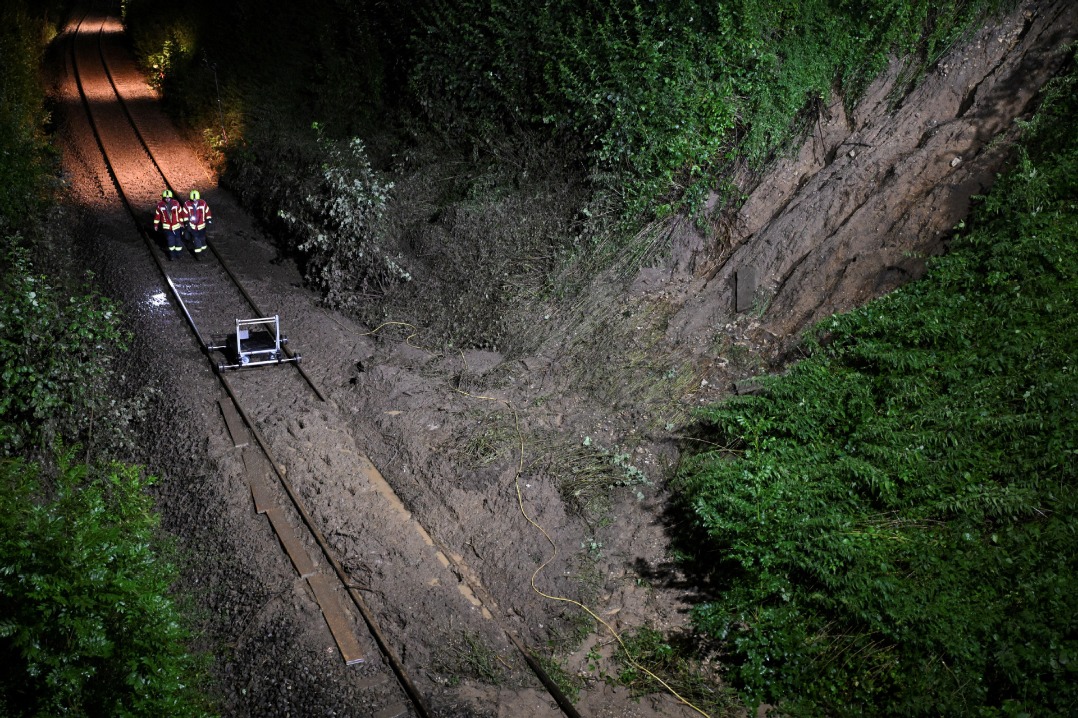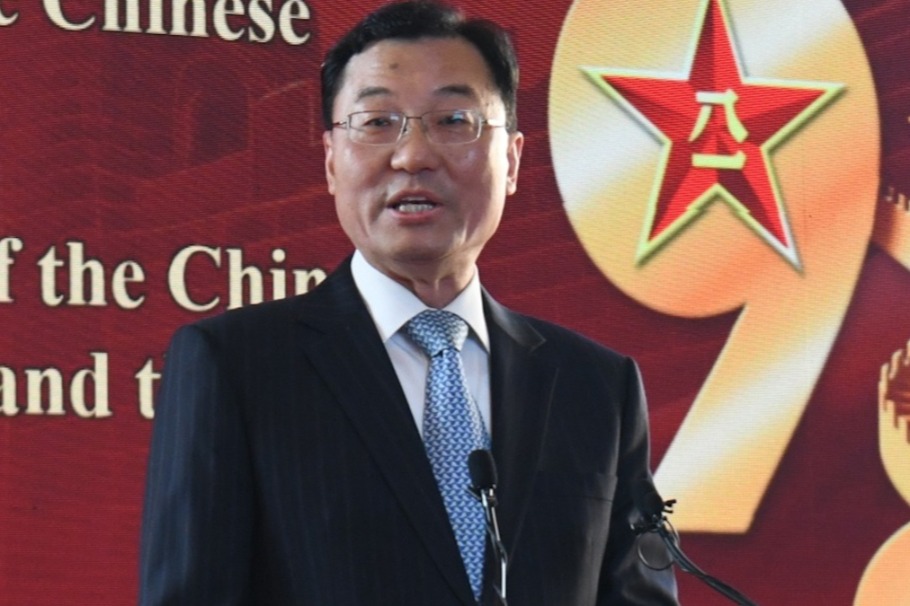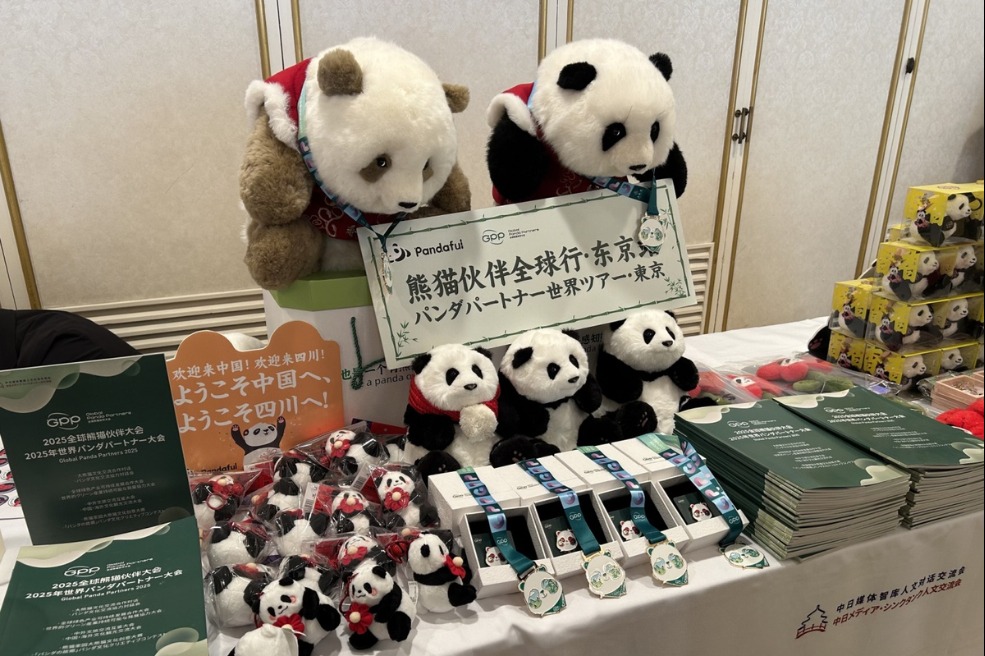Carbon-neutral ensures a positive future for soccer's eco trailblazers


English soccer's biggest talking point this season has been the takeover of Premier League club Newcastle United by a group led by Saudi Arabia's sovereign wealth fund.
So far, the latest injection of fossil fuel money into elite soccer has yet to revive Newcastle's fortunes, but at the other end of the league structure, a team who are green by name and nature are taking the opposite route to success — and showing that it works.
Forest Green Rovers are currently top of League Two, the fourth tier of English soccer, but what makes them stand out is not their performances on the pitch, but their approach off it.
Chairman Dale Vince made his money through a green energy company, Ecotricity, and in the 11 years since he took over, has transformed his local, nearly-bankrupt club into one winning games and admirers, for its ethical and environmental policy.
The world's first entirely vegan sports club, Rovers were honored in 2018 by the United Nations for becoming the first carbon neutral soccer club in the world.
The success of Vince's business — with turnover rising from 13 thousand pounds ($17,800) to 50 million pounds in its first few years of operation — meant that when the then-120-year-old club hit a sporting and financial low in 2010, he came to its aid. So began a remarkable transformation.
"They said they needed that money to get through the summer, but at the end of the summer, the chairman said they needed more, he didn't even know how much more, and that I needed to take over or they'd go out of business," Vince told China Daily.
"I decided I would, without really thinking what it would mean, but on the first day I discovered the club was still giving players red meat, so that went straight away, as it wasn't what I was about. I soon found more things I didn't like, and thought if I was going to be involved, the club should be more consistent with my principles, so the next year, white meat went, then fish, then dairy. The changes I wanted to make would be communicating sustainability to a very different type of audience, and one you might think would typically be resistant."
Less visible changes, such as an organic pitch, electric lawn mower, solar panels and recharging points were introduced at the club's New Lawn stadium, and improvements on the pitch too meant that seven years after Vince became involved, in 2017 Rovers won promotion to the fourth tier of the English professional league for the first time.

This season, their kit is made out of recycled plastic bottles and coffee grounds, and work is in progress on a new stadium, Eco Park, which Vince says will take their green credentials to an even higher level.
"We've done what we can at our current home, like solar panels, chemical-free paint and recycled carpet, but it's a classic concrete and steel structure," he said. "The new stadium, made entirely out of wood, will push the boundaries of sustainable development and have the lowest carbon footprint of any stadium in the world since the Romans invented concrete. It will be set in a 100-acre eco-park, with all kinds of nature-friendly stuff going on around it, including restoring an old canal, creating new wetlands, giving a 20 percent boost to biodiversity and creating a 4,000-job Greentech business park. It will be a thing of beauty, fantastic to be in and around."
Vince is well aware the club needs credibility on and off the pitch, or its message is wasted, but fortunately results seem to be backing up his beliefs. A further endorsement came in September 2020, when Arsenal's Spanish international Hector Bellerin, a prominent vegan, became the club's second-biggest investor.
"Dale has revolutionized that football club — they're vegan, they're eco-friendly, they have a neutral carbon footprint," Bellerin told The Athletic. "They're a clear example of how to run a football club in our times, so I wanted to be a part of it and offer my help to them in whichever way I could."
Bellerin is not the only person to have had their head turned by the Rovers revolution.
"Loads of clubs from around the world in many different sports have come to see what we're doing, and recently, together with the English Football League, we launched the EFL Green Club program, based on our own Green Code, to get clubs onto the path towards zero carbon. So far half the EFL clubs have signed up. We're confident we'll get to 100 percent, and that's the way it has to be."
The club has also banned gambling advertising, and Vince says its ethical stance is now "what we're known for".
"When we're signing players, we don't ask them about their attitudes, but we know our reputation, so people who don't like it won't want to come, which is a great form of pre-selection," he said. "That helps us recruit."
Looking ahead to COP26, Vince admits his hopes are not high, but says the United States and European Union "have got serious politicians with serious policies. I hope they lead the world but I doubt we'll get what we need, but that's the story of how COPs have always been."
But, as Vince's own grassroots revolution at the New Lawn has shown, change at the top can start at the bottom.
"Ultimately, governments react to what they think people want," he said. "Businesses probably respond more quickly — look at how the public's choices over things like electric vehicles and plant-based food have changed things on that front, so it does work. But we really need the politicians on board, as they have their hands on the levers of power."
































